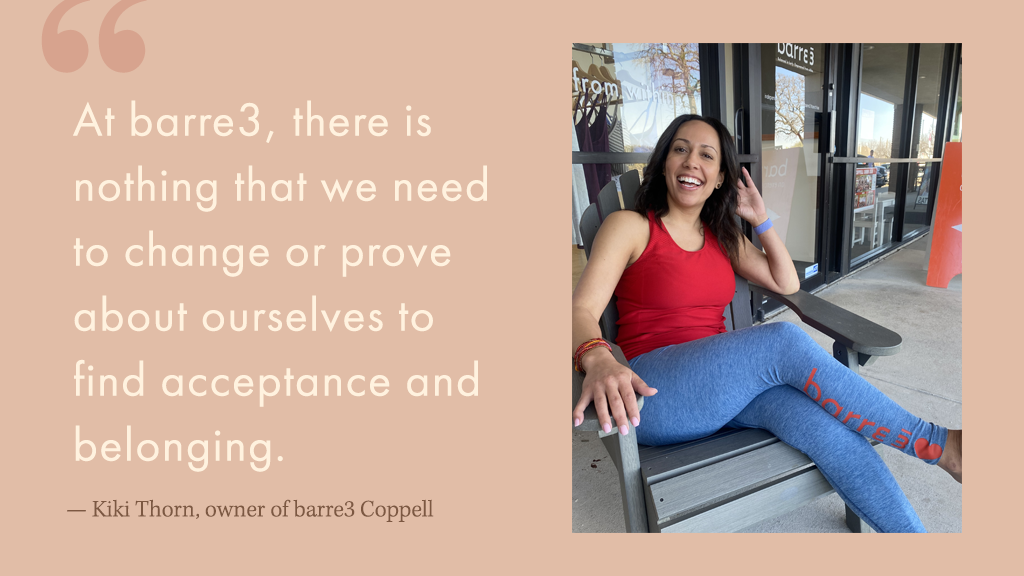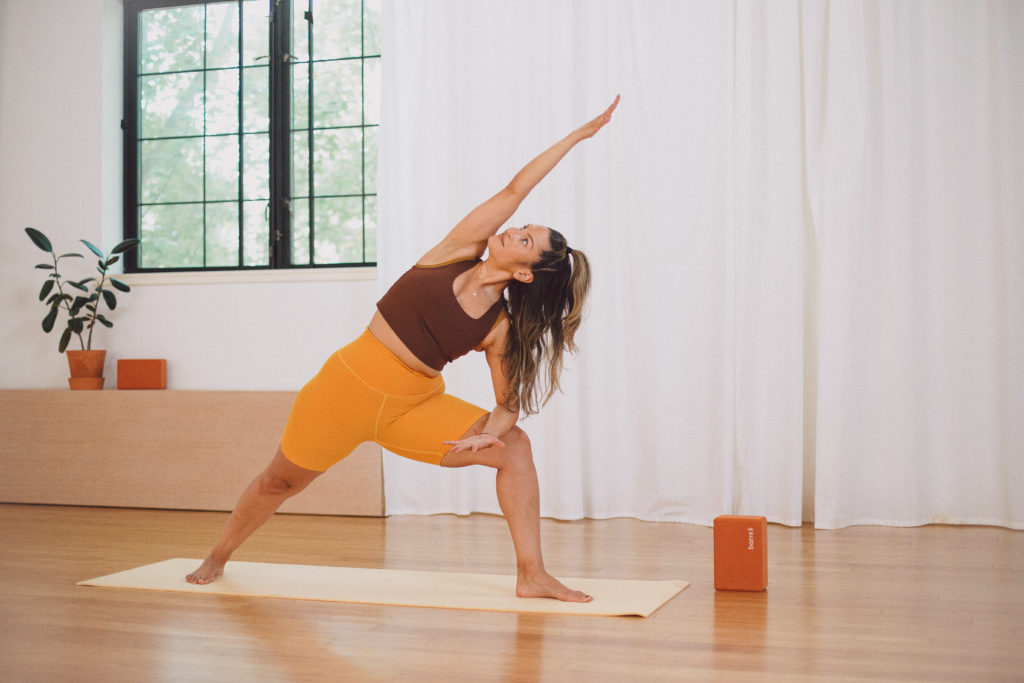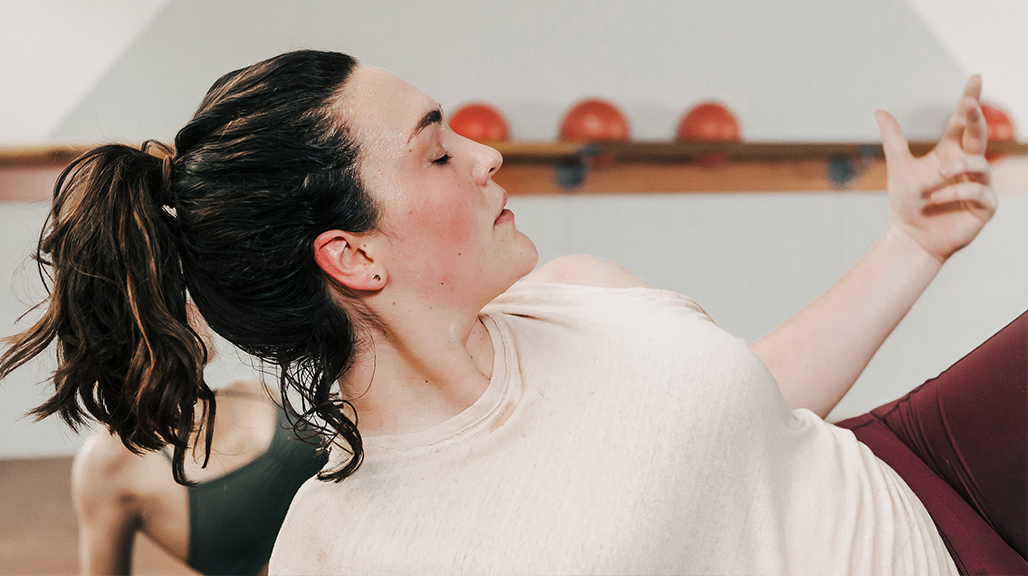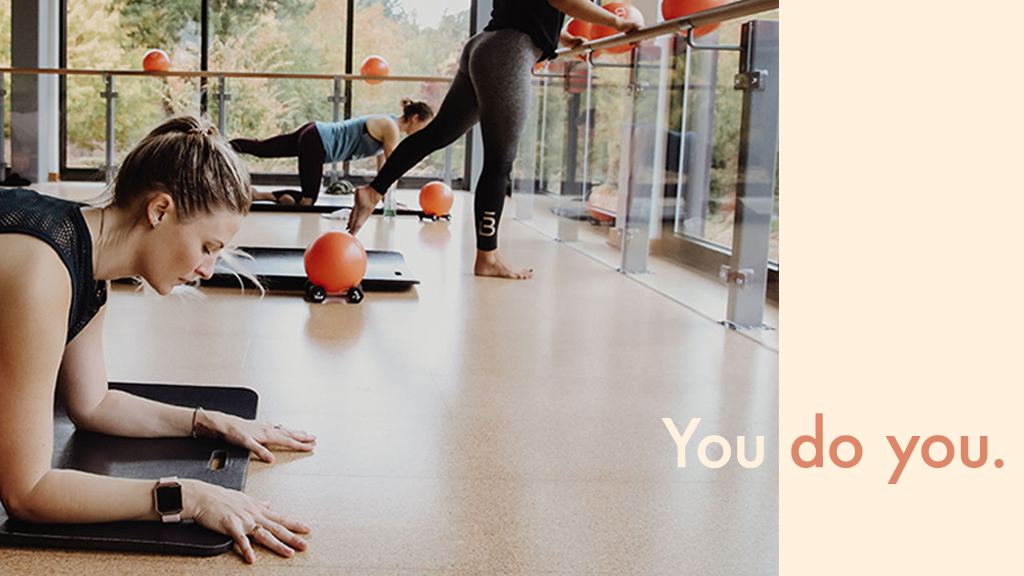Black History Month
STUDIO OWNER STORES: KIKI THORN, BARRE3 COPPELL
From client to instructor to manager, Kiki Thorn had already worn many hats at barre3. This past winter, she added one more to the mix: barre3 studio owner. Read on to get to know Kiki, including why she decided to buy an existing barre3 studio, how she feels as a biracial woman in the boutique fitness space, and why she’s committed to making her studio a place that welcomes everyone.
BARRE3 MAGAZINE: Congratulations on your new role as owner of barre3 Coppell! Before we dive into that, let’s talk about your background with barre3. How did you first discover the workout?
KIKI: I found barre3 when the Coppell studio first opened, back in 2015, and I started teaching soon after that. I’ve taught other workouts—I’m certified in just about everything except for spin—and I loved that barre3 was the perfect meld of everything: strength, cardio, mind-body connection, stretching. It pulls everything together in a way that works for everyone.
BARRE3 MAGAZINE: And then a few years later you became the Assistant Manager of that studio, right?
KIKI: Yes, I had taken a break from teaching barre3 to focus on other projects and raising my three children, and in October 2020 I saw that the Coppell studio was looking for an assistant manager. I was hired, and right away I decided I wanted to start teaching again. I hadn’t taught b3 for three years, so I did the online instructor training. Soon after, I became the mentor for the studio.
BARRE3 MAGAZINE: How did you transition from manager and mentor to owner?
KIKI: The owner at the time announced that she was going to sell the studio, and I knew right away that I wanted to step up and purchase it. I own another business with my family, so I didn’t necessarily need to move into an owner role, but I wasn’t doing it for myself—it was for all of us in the barre3 Coppell community. At the time, the studio had lost some of its original sense of togetherness, and things felt shaky. I felt very committed to restoring that sense of community that had drawn me in when I first joined the studio.
BARRE3 MAGAZINE: Since you bought an existing studio, you didn’t have to do any build-out—a nice perk!
KIKI: That’s right! I signed the paperwork on the last day of the year—December 31st, 2021—and we went right into The January Challenge.
BARRE3 MAGAZINE: That’s a whirlwind! Have you had a chance to dig into your efforts to restore the community, or are you still getting your bearings as an owner?
KIKI: Community is my number-one priority, so I put energy into that from the beginning. Instructors who had left are already coming back, and members have been coming back. We’ve been very busy!
BARRE3 MAGAZINE: We’ve talked often in The barre3 Magazine about how the boutique fitness space has traditionally been largely white. I think that’s beginning to change, but slowly. Can you talk a little about your experience as a biracial woman in boutique fitness?
KIKI: Something I noticed right away about the practice of barre3 was the feeling of inclusion. Aside from holding space for all levels of fitness and all types of bodies, barre3 also holds space for all types of people. I felt welcomed just as I was.
BARRE3 MAGAZINE: Was that different from other experiences you’ve had?
KIKI: Growing up biracial, identity and a sense of belonging were sometimes challenging. I didn’t completely identify as white or black. I had anxiety around those standardized tests that would ask you to check a box to indicate race—I hated it. I remember one time I asked the teacher which one to check, and she said, “just mark black.” The whole interaction was very unsettling to me.
BARRE3 MAGAZINE: That must have felt so confusing.
KIKI: It did. My husband is white, and I’m grateful that our kids have the option to check “multiple races” in those same tests. My name was always an issue, too. My full name is Takeitha, and I got teased and made fun of all through school for it because it was ethnic. As an adult I grew tired of explaining and pronouncing my name to people, so I began to go by my childhood nickname, Kiki.
BARRE3 MAGAZINE: I’m curious about how your experiences might shape how you approach your role as a barre3 owner. What do you hope the studio provides for your community?
KIKI: I want to give everyone that experience of the workout—that feeling of release, the benefits of taking time for yourself. I also want everyone to experience the inclusiveness of the community. At barre3, there is nothing that we need to change or prove about ourselves to find acceptance and belonging. There is room for everyone. My barre3 journey has taken me from client to instructor to mentor and now studio owner. All along the way it has felt like home. All are welcome.
Thank you so much, Kiki!
From client to instructor to manager, Kiki Thorn had already worn many hats at barre3. This past winter, she added one more to the mix: barre3 studio owner. Read on to get to know Kiki, including why she decided to buy an existing barre3 studio, how she feels as a biracial woman in the boutique fitness space, and why she’s committed to making her studio a place that welcomes everyone.
BARRE3 MAGAZINE: Congratulations on your new role as owner of barre3 Coppell! Before we dive into that, let’s talk about your background with barre3. How did you first discover the workout?
KIKI: I found barre3 when the Coppell studio first opened, back in 2015, and I started teaching soon after that. I’ve taught other workouts—I’m certified in just about everything except for spin—and I loved that barre3 was the perfect meld of everything: strength, cardio, mind-body connection, stretching. It pulls everything together in a way that works for everyone.
BARRE3 MAGAZINE: And then a few years later you became the Assistant Manager of that studio, right?
KIKI: Yes, I had taken a break from teaching barre3 to focus on other projects and raising my three children, and in October 2020 I saw that the Coppell studio was looking for an assistant manager. I was hired, and right away I decided I wanted to start teaching again. I hadn’t taught b3 for three years, so I did the online instructor training. Soon after, I became the mentor for the studio.
BARRE3 MAGAZINE: How did you transition from manager and mentor to owner?
KIKI: The owner at the time announced that she was going to sell the studio, and I knew right away that I wanted to step up and purchase it. I own another business with my family, so I didn’t necessarily need to move into an owner role, but I wasn’t doing it for myself—it was for all of us in the barre3 Coppell community. At the time, the studio had lost some of its original sense of togetherness, and things felt shaky. I felt very committed to restoring that sense of community that had drawn me in when I first joined the studio.
BARRE3 MAGAZINE: Since you bought an existing studio, you didn’t have to do any build-out—a nice perk!
KIKI: That’s right! I signed the paperwork on the last day of the year—December 31st, 2021—and we went right into The January Challenge.
BARRE3 MAGAZINE: That’s a whirlwind! Have you had a chance to dig into your efforts to restore the community, or are you still getting your bearings as an owner?
KIKI: Community is my number-one priority, so I put energy into that from the beginning. Instructors who had left are already coming back, and members have been coming back. We’ve been very busy!
BARRE3 MAGAZINE: We’ve talked often in The barre3 Magazine about how the boutique fitness space has traditionally been largely white. I think that’s beginning to change, but slowly. Can you talk a little about your experience as a biracial woman in boutique fitness?
KIKI: Something I noticed right away about the practice of barre3 was the feeling of inclusion. Aside from holding space for all levels of fitness and all types of bodies, barre3 also holds space for all types of people. I felt welcomed just as I was.
BARRE3 MAGAZINE: Was that different from other experiences you’ve had?
KIKI: Growing up biracial, identity and a sense of belonging were sometimes challenging. I didn’t completely identify as white or black. I had anxiety around those standardized tests that would ask you to check a box to indicate race—I hated it. I remember one time I asked the teacher which one to check, and she said, “just mark black.” The whole interaction was very unsettling to me.
BARRE3 MAGAZINE: That must have felt so confusing.
KIKI: It did. My husband is white, and I’m grateful that our kids have the option to check “multiple races” in those same tests. My name was always an issue, too. My full name is Takeitha, and I got teased and made fun of all through school for it because it was ethnic. As an adult I grew tired of explaining and pronouncing my name to people, so I began to go by my childhood nickname, Kiki.
BARRE3 MAGAZINE: I’m curious about how your experiences might shape how you approach your role as a barre3 owner. What do you hope the studio provides for your community?
KIKI: I want to give everyone that experience of the workout—that feeling of release, the benefits of taking time for yourself. I also want everyone to experience the inclusiveness of the community. At barre3, there is nothing that we need to change or prove about ourselves to find acceptance and belonging. There is room for everyone. My barre3 journey has taken me from client to instructor to mentor and now studio owner. All along the way it has felt like home. All are welcome.
Thank you so much, Kiki!










0 people have left a comment. Join the conversation!
View Comments